Accessibility
Please let us know your needs. We can arrange meetings in accessible buildings and will arrange an interpreter or information in a different format if you need it.
The Sensory Needs Service (SNS) provides support to deaf and vision impaired (VI) children and young people (CYP) and their families (aged 0 to 25).
We also provide guidance to education settings and other professionals supporting children with sensory needs.
The SNS support and promote the inclusion of CYP with VI and deafness in a range of settings. We also have four Deaf Support Facilities (DSF) in East Sussex which support our highest need pupils.
After initial assessments, the Sensory Needs Service can support children and young people in a variety of ways:
* The National Deaf Children’s Society (NDCS) uses the term ‘deaf’ to mean all types of hearing loss, including unilateral deafness and temporary deafness such as glue ear.
Children are often identified as being deaf before they start school, so referrals typically arrive from audiology.
When a child meets criteria, we respond to the referral by first contacting the family and then the educational setting. This might be to request further information or to give advice over the phone and say what the next step is likely to be. An initial visit will often be arranged so we can meet and observe the child at home or their educational setting. We then use nationally agreed criteria for assessing the level of need for each referral.
This is the “Eligibility Criteria for Scoring Support Levels” produced by the National Sensory Impaired Partnership (NatSIP). It comprises of a series of questions with graded responses. A total score is calculated giving a guide as to the level of support that might be needed for each pupil. We also consider our own professional opinion of the level of need and the educational placement of that pupil.
Referrals for children and young people (CYP) with vision impairments come from health, educational settings, and other professionals.
If the CYP meets our criteria for support, we respond by first contacting the family or educational setting dependent on the age of the child.
Criteria for Support:
Parental consent must be obtained alongside ophthalmology reports and clinical information. An initial visit will usually be arranged so we can assess the child using the nationally agreed National Sensory Impaired Partnership (NatSIP) criteria.
We also use our professional opinion regarding the level of need and the educational setting the CYPVI attends. For example, where a severely sight impaired CYP is based in a special school, their score may be equivalent to that of a CYPVI in mainstream. The level of support may vary as the strategies used in a special school can often mirror those that we would recommend.
As an authority, we do not have dedicated VI support bases. Where a severely sight impaired CYP needs to use Braille, we can provide a package of support to help them in their mainstream educational setting. They will also receive additional funding.
MSI is a term the Department for Education use for those who are deafblind. It's also sometimes called 'dual sensory loss' or 'deafblindness'.
Our teacher for MSI works alongside our other specialist teachers to provide a coordinated approach to the needs of the child. We can offer specialist MSI training and support educational setting staff with supporting communication and independence.
You can read more about the Curriculum Framework for Children and Young People with Vision Impairment on the RNIB site:
In addition to Teachers of the Deaf and Teachers of CYP with Vision Impairments, the SNS also has a Teacher of CYP with Multi-Sensory Impairment (Deaf blindness).
We also employ three Specialist Teaching Assistants, a Technical Resource Officer and a Habilitation and Mobility Officer.
The Sensory Needs Service does not see children and young people who are electively home educated.
The Sensory Needs Service does not support children with an EHCP attending an independent special school as it will have been stated that they can meet the needs of the child and provision outlined within their Plan There is a charge for visiting children in other independent schools.
Please let us know your needs. We can arrange meetings in accessible buildings and will arrange an interpreter or information in a different format if you need it.
01273 481154
Last Updated on 19th December 2024
None of the Organisations on ESCIS have been ‘vetted’ by ESCIS or East Sussex County Council. Except those registered with Ofsted, you must evaluate, and bear all risks associated with the use of any information on ESCIS.


